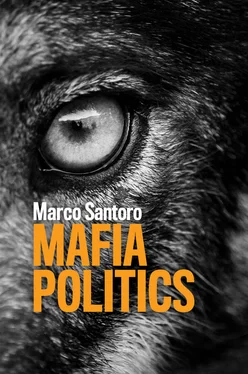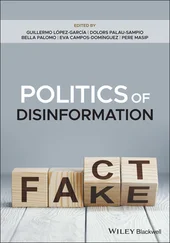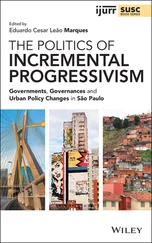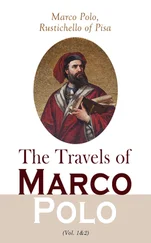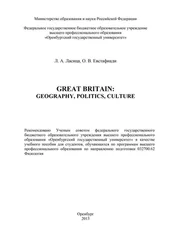Two points need some further clarification. First, if not the name, then the social reality to which the name refers pre-existed the arrival of the Piedmontese army. References to a social phenomenology appearing similar to what was subsequently intended with the term ‘mafia’ without being named as such date back to at least 1838: not exactly prisons and gangs, but ‘fraternities’ and ‘sects’ operating as ‘small Governments inside the Government’ (see Pontieri 1945, 190–1). Second, regarding the etymology, the most accredited argument among an array of many is that mafia’s roots are in the Arabic language – Arabic being the idiom of the conquerors of the island in the High Middle Ages – and Arabic is a strong matrix of many Sicilian dialectal words still current today (Arab influences are still visible today in other cultural forms, such as regional Sicilian cuisine and some local artistic expressions, like folk music). Possibly, the most sociologically interesting hypothesis about etymology sees the name ‘mafia’ derived from the Arabic mu’afa which means ‘safety and protection’. Certainly, it is the most acceptable also because of the theoretical understanding of protection as one crucial objective of mafiosi activities, if not their core activity. What mafiosi do, says the sociological current common wisdom, is provide protection to people and things. While made famous and analytically elaborated by Gambetta (1993), this association with protection is widespread in the literature on the mafia, at least since the beginning of the twentieth century. Interestingly, protection is far from a special activity of mafiosi: indeed, protection is exactly what any political institution and leader would claim to provide, according to a well-established line of thought dating back to Greek political theory, and with Thomas Hobbes as its modern champion. As ‘protection’ is what mafia deals with, it is worth investigating what protection is and what its provision entails – something we will do in the next chapter.
There is a last hypothesis, authoritatively advanced by the Italian linguist Mario Alinei, a major scholar of Indo-European languages, who sees in the word ‘mafia’ a derivation from the Osco-Umbrian (ancient pre-Latin italic language) (a)mafla , whose meaning is ‘comparable’ to the Latin amicitia (friendship) with an immediate reference to the meaning of ‘political friendship’, i.e. alliance, which for Alinei may account for the positive meanings attached to the word ‘mafia’ in Sicily and in the Mezzogiorno .
Source : Novacco 1959; Hess 1970; Lo Monaco 1990; Patella 2002; Alinei 2007.
The Setting (The Case Study)
The Sicilian mafia is the main empirical focus of this book, on the assumption that, while not exhausting the phenomenon, this regional and historical case has a sort of ontological primacy – at the very least for giving the name to the category. However, in developing and testing its arguments, the book makes comparative references to other mafias as well, especially the American Cosa Nostra (strongly linked to the Sicilian mafia), the Neapolitan camorra , the Calabria-based ’ndrangheta , the Russian mafiya , the Japanese yakuza and the Chinese triads . An unusual comparative attention is also devoted to a still relatively understudied instance of mafia, the Indian mafia (Ghosh 1991; Michelutti et al. 2018). It is one of the strategic moves of the book to compare cases of mafia life in geographically and culturally distant locations that may have some commonalities in their political histories. What makes India an interesting comparative case for a study of mafia focused on the Sicilian case is its colonial past under the British.
Suffice it to say that, over ten centuries, Sicily was conquered and ruled by such different peoples as Muslim Saracens, Normans, the French, Aragones, the Spanish and, finally, (northern) Italians. After unification, Sicily accounted for a large portion of the Italian emigration towards the United States, Latin America and Africa. Emigration means not only exit and loss, but also gaining new ideas and institutions through transnational circuits, mimicry and imitation. The American experience is an integral part of the Sicilian mafia’s current repertoire – a pattern that works also for other Italian mafias. But the same could be said for other experiences of contact and interchange as well. Muslim domination lasted two centuries, leaving a deep cultural heritage that is still visible in folklore, language, art and gastronomy (Britt 2007; Dalli 2008). In the twelfth century, Sicily was the site of one of the very first experiments in state-building in the world (under the Normans, who introduced feudalism to the island), before becoming a sought-after colony of grand foreign powers like the rising French monarchy, the Habsburg Empire and then the Bourbons, who dominated in Spain and Italy from the sixteenth century well into the nineteenth. Sicily’s status changed many times; sometimes it was a totally dependent colony (not only under foreign powers in Paris or Madrid, but also under Italian continental cities like Naples), at other times it was a semi-autonomous regional state. When the mafia was first ‘discovered’ – something which occurred in the 1830s – Sicily was still a dominated country in the Mediterranean Sea, at the extreme southern periphery of Europe, very close to Africa, and longing for its independence, or at least some degree of political autonomy (Abulafia 1977, 1987; Bresc and Bresc-Bautier 1993; Takayama 2019).
While never formally a colony, for centuries Sicily had been under the dominion of some other, often foreign, political centre. The famous Sicilian Vespers (1282) epitomises the strong tensions this situation of subjection could generate. After Spanish domination, which lasted for more than two centuries (see Benigno 2007), a British protectorate was established in 1806 continuing until 1816 – a short period, but also a very productive one (Simon 2021). In those few years, in fact, a series of reforms changed the political and institutional structure of the island – including the definitive demise of feudalism and experimentation with a liberal constitution and parliamentary monarchy (Mack Smith 1968). The first half of the nineteenth century was a period of intense mobilization, and insurgences occurred in 1820, 1838, 1848 and 1866 (Nicotri 1934). Even after Italian unification (1861), Sicily was periodically the site and target of political projects of separation from the Italian national state, seen by many Sicilians as a colonial power. In 1943, the Sicilian separatist movement gained new force and, with the aid, it seems, of organized banditry (for the occasion promoted to the status of a newly formed Sicilian army) and the mafia, produced the most impressive moment of crisis in national identity since unification (Marino 1979). The granting of regional autonomy to Sicily after the Second World War was mainly an institutional response from the national centre to this deep and dangerous local quest for independence. In brief, we could say that the Sicilian mafia evolved in a context of semi-colonial dependence periodically marked by violent popular insurgencies against foreign dominators. The aforementioned alliance of mafia with political separatism was hardly occasional. We can say that no event of political mobilization in the modern history of Sicily, at least since the 1830s, has taken place without the active presence of the mafia and mafiosi. This presence is just the tip of the iceberg of the political role played by the mafia in Sicily, and, from this basis, in other parts of the globe.
The decades that predated the discovery of the (Sicilian) mafia were the same in which a relatively new institutional form, the sovereign territorial state, was expanding its hegemony from specific regions of central Europe, such as England and France (and to a lesser degree Prussia), where it was first elaborated, to the rest of Europe, including Sicily. Historically, both France and England had important vested interests in the Mediterranean island: France in the thirteenth century (the period of the Vespers), England (the other island where the Normans dominated and had started the institutional experiments which strongly contributed to the early emergence of the state: see Strayer 1970) until the early nineteenth century, during and after the Napoleonic wars, when Sicily was under the protection of the United Kingdom.
Читать дальше
